‘The Hiroshima bomb detonated 3km from my house’: veterans around the globe tell their war stories (PHOTO)
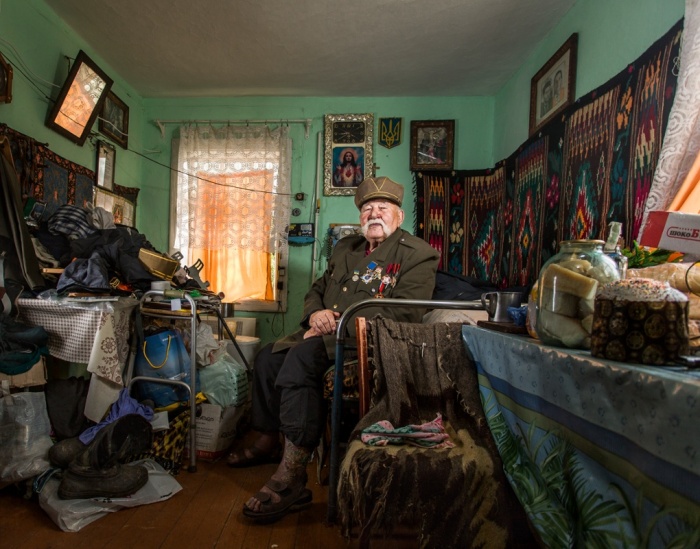
Sasha Maslov has spent five years flying to more than 20 countries to track down veterans of the second world war, photograph them and listen to their life stories.
Seventy years after Germany’s surrender on VE Day, it’s a remarkable and moving survey of survivors, from kamikaze pilots to teenage resistance fighters.
Korupciya.world reports citing The theguardian
Takeoka Chisaka, Hiroshima, Japan
One morning in August 1945, I was walking home from the night shift at a factory in Hiroshima. As I reached my door, there was a huge explosion. When I came to, my head was bleeding and I had been blasted 30m away. The atomic bomb had detonated. When I found my mother, her eyes were badly burned.
A doctor said they had to come out, but he didn’t have the proper tools so used a knife instead. It was hellish. I became a peace-worker after the war. In the 1960s, at a meeting at the UN, I met one of the people who created the atomic bomb. He apologised.
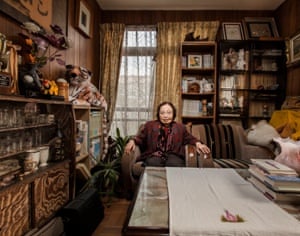
Dmytro Verholjak, Markova, Ukraine
I was a kid when I joined the Ukrainian Insurgent Army. I was living in a forest with a few other kids when we were busted by the People’s Commissariat for Internal Affairs.
They fired at us and I got five bullets in my foot but escaped. Nobody cleaned the wound. After three weeks it was crawling with bugs. Even after the war ended, we carried on fighting the Soviets. I was arrested in 1952 and sent to a camp for 25 years in Mordovia. It was 1980 when I finally got back to Ukraine.
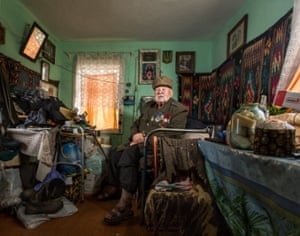
Ichiro Sudai, Takayama, Japan
I was in a kamikaze squadron, but the war finished before I was deployed. Kamikaze pilots would have farewell parties to drink sake. By the end of the war, we didn’t even have sake, only water.
They didn’t return the bones of the kamikaze pilots to their families. So we cut our hair and nails and put them in an envelope with a message for our families. I wasn’t afraid to die. If I did, it would be my destiny as a pilot. Everyone was brainwashed then. After the war, I lived for my hobbies. I wrote poetry, grew flowers and ran a lot. I still have a very strong body.
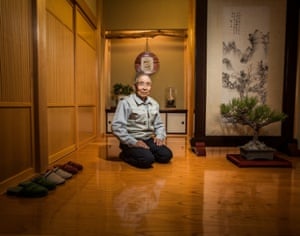
Jean-Jacques Auduc, born in Le Mans, France, 1931
I was 13 when I joined the resistance. One of my missions came from the British. They had seen a fleet of planes and were worried about their purpose. I went there with my kite and realised the planes were fakes, made of wood. The British retaliated by dropping fake wooden bombs.
My parents were sent to concentration camps in 1943. I had to keep moving to hide from the Gestapo. My father managed to return. While my mother was in a camp, she was sold to a lab for experiments; 98% of these women were killed, but she came back. She died aged 41.
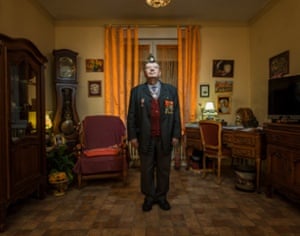
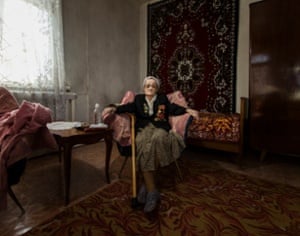
Ken Smith, Portsmouth, England, born in 1922
I got a bullet in the arm in 1944 when I was a sniper. It’s still there now. We had climbed a mountain on the island of Lusin to blow the place up, but the Germans were waiting and opened fire. I knew I’d been hit; my hand was all sticky.
Later, we discovered a German in the bushes. I slung him on my shoulder. Then I heard a bang in my ear – he’d shot himself. I heard his gun drop and thought, ‘I’m going to have a souvenir.’ We paddled back to our ship, and I was bleeding a lot. But then I saw all these badly wounded chaps. I wasn’t a serious case.
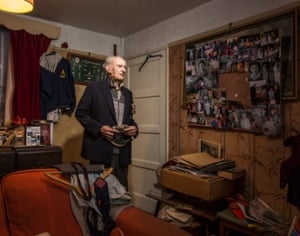
Imants Zeltins, born in Bauska, Latvia, 1922
When Germany attacked Russia in 1941, we thought they would liberate us from Soviet occupation. By 1944, the Red Army was closing in on us, so I joined up.
That September I was injured in a fight that was 28 Soviet tanks against 200 Latvian conscripts. I woke in a German hospital. They had to cut off my right arm.
By April 1945, the Americans had come; we were freed. But I ended up in concentration camps in Germany, Poland and Russia. Most of the people around me ended up in Siberia – for decades. I was the only one that didn’t.
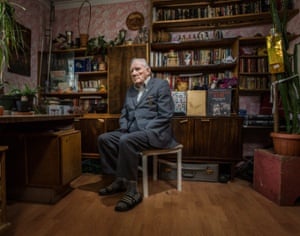
Munshi Ram, born in New Delhi, India, 1921
I was born in to a family of farmers. In 1939, our entry into the war was declared and I happily volunteered to serve. I was sent to Bareilly for six months’ training.
We were taught to be relentless, ready to fight to the death. After that, I went to Europe. Luckily, the Nazis were starting to have difficulties. Our regiment put up a tremendous fight.
Time has faded both my memories and my sight, but history shows our side was successful. After I left the army, I rejoined the family business, then my wife and I had two sons and a daughter.
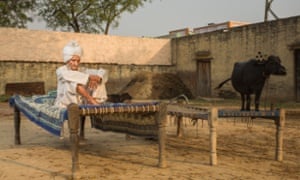
Политика конфиденциальности | Правила пользования сайтом








